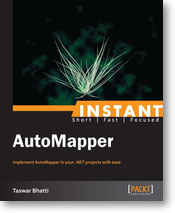If you’re exploring the idea of pursuing a career path with Microsoft but feeling uncertain about where to begin, we’ve got you covered. Watch our MVP’s video on Microsoft Azure learning, certifications, and career growth. Learn about role-based certs, Microsoft Learning Rooms, and cultivating a growth mindset for success. 🧑💻 To learn more: 🔗 Microsoft […]

Redis HyperLogLog is used for calculating the cardinality of a set or non mathematically speaking it is a probabilistic data structure used to count unique values. Basically it is an algorithm that use randomization such that it can provide an approximation of the number of unique elements in a set by just using a constant […]

Redis Hash Datatype are similar in C# world as Dictionary e.g Dictionary<string, string>. Just like in C# redis stores map of attributes using key value pair. One thing to note is in Redis a Hash both the field name and the value are strings. Therefore, a Hash Datatype is a mapping of a string to […]

Continuing on with our Redis for .NET Developer, the Redis String Datatype is also used to store integers, float and other utility commands to manipulate strings. Redis String Datatype using Integers In Redis float and integers are represented by string. Redis parses the string value as an integer and the neat thing about them is […]

What is Redis – Installing Redis on Windows Redis (REmote DIctionay Server) is a very popular open-source, networked, in-memory, key-value data store, sometimes referred to as a data structure server which also comes with optional durability. Redis is well known for high performance, flexibility, provides a rich set of data structures, and a simple straightforward […]

Here is another quick tip on JavaScript, the default value in Javascript. If you are coming from the C# world you may have seen something along the line of
|
1 |
string str = person.FirstName ?? "Unknown"; |
The above code shows the ?? for null coalescing operator in C#, don’t confused it by the generic default value. In JavaScript, there is the […]

In JavaScript there are two types of equality operator, the === and the !== , sorry I forgot to mention their evil twin == and != . tsdr; (too short didn’t read) Use three equals unless you fully understand the conversions that take place for two-equals. Basically what the triple equal (===) compares is if […]

Here is Javascript quick tip debugger for Javascript developers, there is a debugger statement in JavaScript, which invokes any available debugging functionality. e.g setting a break point, and if there is no debugging functionality available the statement has no effect. Let’s say you wish to debug a function
|
1 2 3 4 5 6 7 8 |
var x = (function f() { var message = 'hello world'; if(typeof window.console !== 'undefined') { console.log(message); } else { alert(message); } })(); |
One could then add a debugger; […]

Here is another quick tip on creating modular JavaScript, namely function wrappers, or more technically called Immediately-Invoked Function Expression (IIFE). A self-invoking anonymous function runs automatically/immediately when you are create it, but don’t confuse it with document.ready or window.onload. The basic of IIFE is to use a wrapper so that it does not pollute the […]



